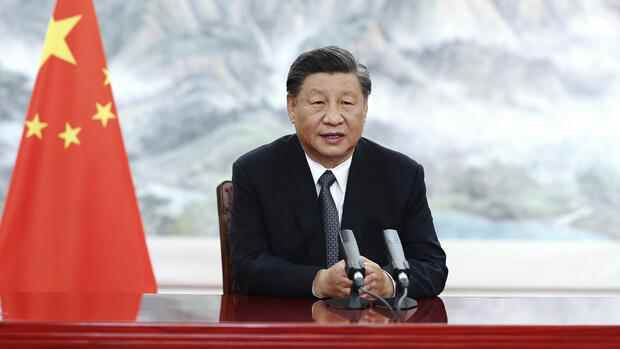“Those who play with fire will perish.”
(Photo: AP)
The last thing the world economy, indeed world politics, needs right now is an escalation of the Taiwan conflict. As is so often the case, a more or less insignificant reason brings this dispute, which has been smoldering for decades, into the vicinity of a military confrontation between the two superpowers China and the USA: the visit of Nancy Pelosi, the Speaker of the Democrats in the House of Representatives, to Taipei.
It’s not even an official state visit, nor is there an official agenda.
From Beijing’s point of view, one can now ask what is more serious: that US President Joe Biden publicly announced that he would provide military assistance to Taiwan should the Chinese attack the island; or that a US representative, albeit the third highest in the state, pays a visit to Taipei.
It is uncertain whether China will dare to intervene militarily. Russia’s imperialist adventure in Ukraine seems rather daunting – both in terms of the complexities of conquering a country and the economic risks of possible Western sanctions.
Top jobs of the day
Find the best jobs now and
be notified by email.
It is undisputed that the risk of a military conflict has increased with Pelosi’s visit. China will react – far beyond the sanctions that have now been decided against Taiwan.
Difficult position for Joe Biden
Both sides have upgraded their rhetoric in such a way that a face-saving retreat hardly seems possible. “Those who play with fire will perish,” Xi warned.
Biden’s publicly stated intention to intervene militarily also does not fit in with the previous diplomatic policy of “strategic ambiguity”. Both sides use a language that leaves little room for rapprochement.
One thing is certain: It was simply unnecessary to take this risk – and only Pelosi will know why she thinks it is necessary now of all times to put her Democratic party colleague in the White House in this difficult position. The belief that independently governed Taiwan is part of Chinese territory is part of the state raison d’être of the People’s Republic.
The US does not dispute this claim, but neither does it expressly recognize it. Because of this, the United States does not maintain an embassy in Taiwan, only an institution called the “American Institute.”
This diplomatic fuzziness kept the conflict in limbo for many years. The fragile state of limbo has been severely disturbed by Pelosi’s visit. On the other hand, Xi’s unequivocal threats to his armed forces have challenged the principle of peaceful unification that had lasted for half a century.
Other Handelsblatt articles on the Taiwan conflict:
Incidentally, Germany also defines its own one-China policy in such a way that the seven highest state representatives should not have any official contact with Taiwanese officials. From Berlin’s point of view, Taiwan is a political issue – not only because the country, with its dominance on the international chip markets, is of economic importance, but also because for decades it has been a guideline of German foreign policy not to tangle with China out of economic interests.
Liberal, creative, free – Taiwan is the alternative to the Chinese dictatorship. The island is also very successful economically. From Beijing’s point of view, this is an impertinence. One can only hope that Xi will at least act more rationally than the warlord in the Kremlin – and correctly assess the enormous political and economic risks of an invasion.
The fact that Xi has major economic problems in his country doesn’t necessarily make him more predictable. The danger is that a war over Taiwan would have a completely different geopolitical dimension than the terrible war in Ukraine.
More: In the podcast: The global chip industry depends on Taiwan
